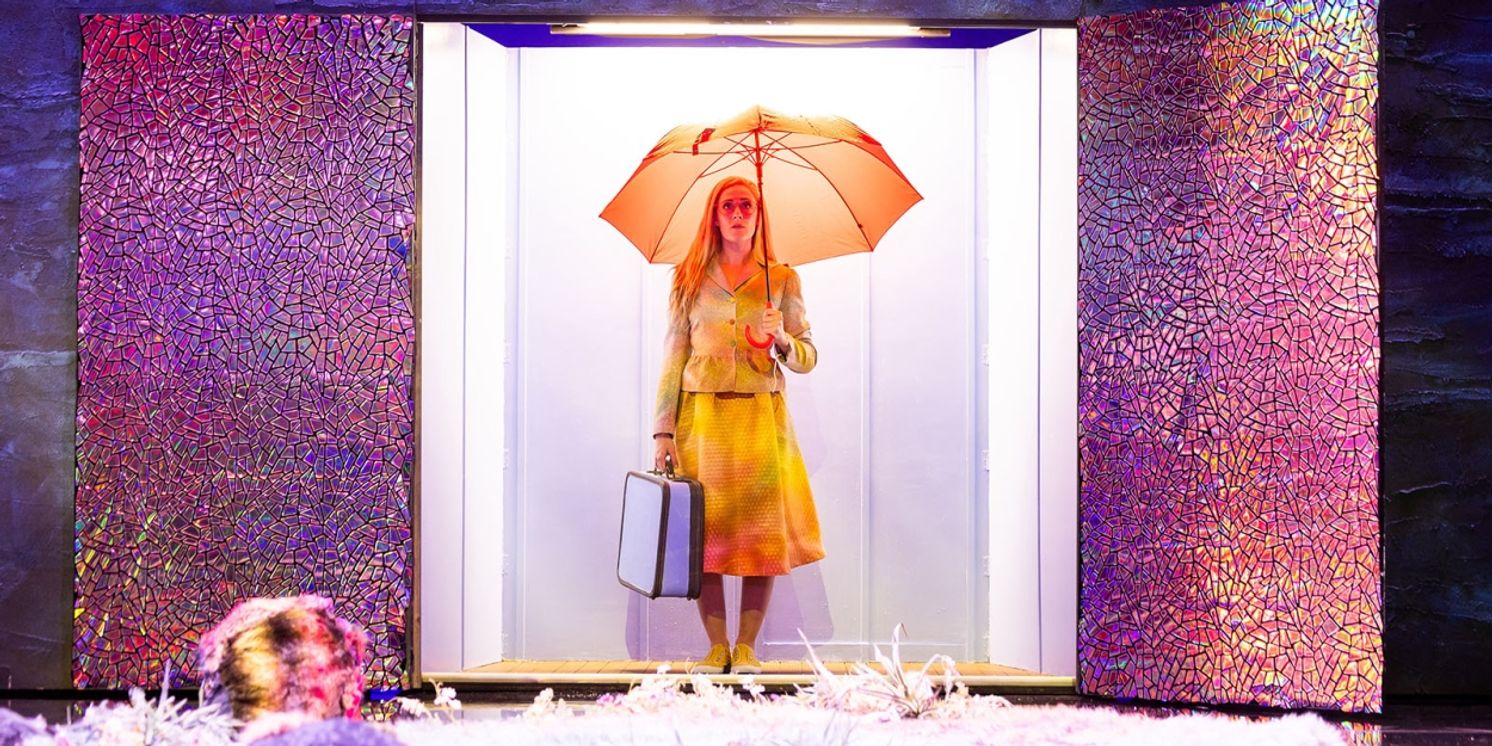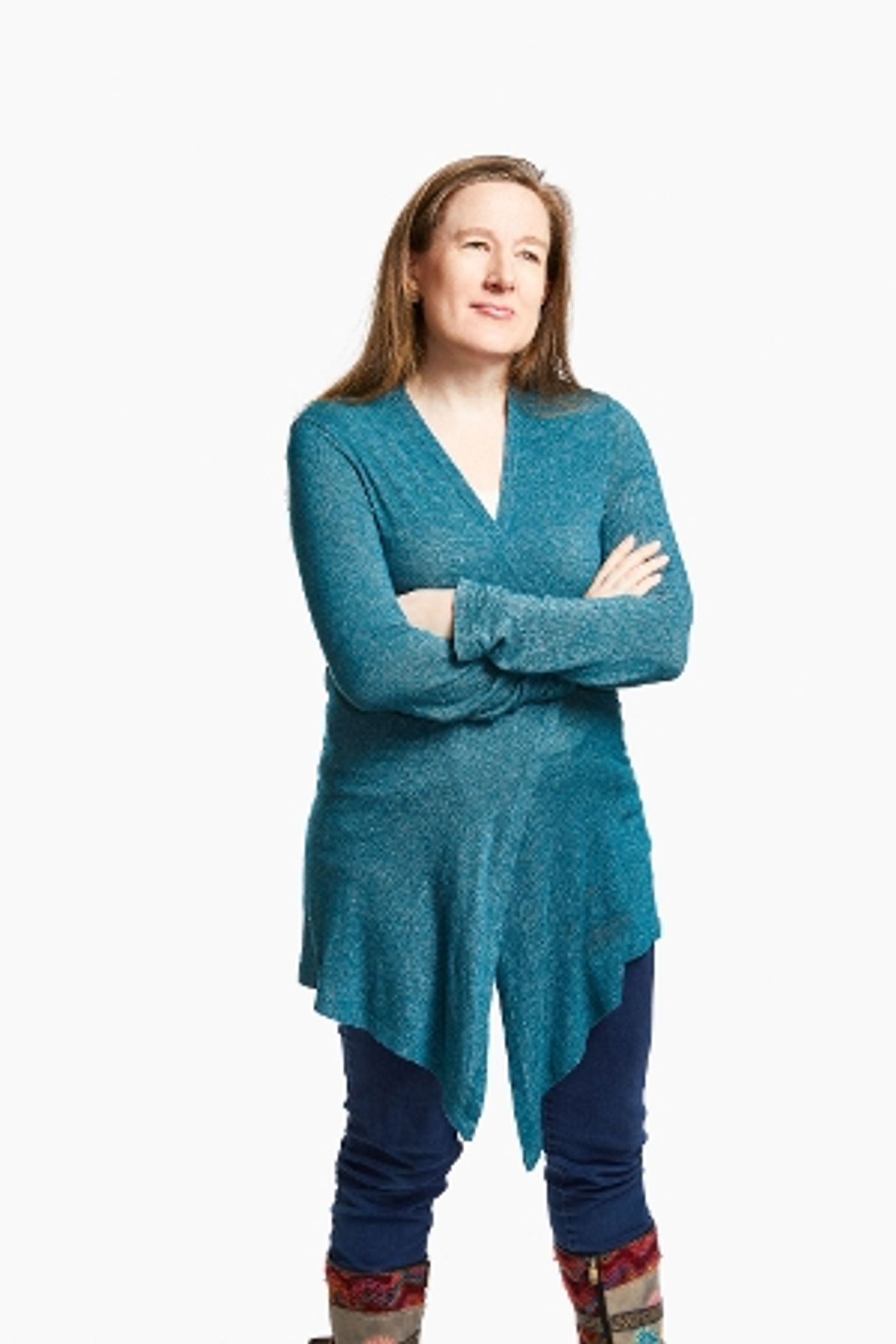Interview: Playwright Sarah Ruhl chats about adapting EURYDICE Into a Libretto
The Boston Lyric Opera production runs through March 10 at the Huntington Theatre.


In both her 2003 play “Eurydice” and her libretto for Boston-born composer Matthew Aucoin’s 2020 opera of the same name, Tony- and Pulitzer Prize-nominated playwright Sarah Ruhl (“The Clean House,” “In the Next Room (or The Vibrator Play)”) challenges the traditional myth of Orpheus and the Underworld by providing a voice and prominence to a character who is usually a silent part of the background.
A retelling of the Orpheus myth from the point of view of his bride, Eurydice, the opera follows the title character as she travels to the underworld on her wedding day.
“Eurydice” was originally developed by the Metropolitan Opera/Theater Center Theater New Works Program, with original orchestration commissioned by the Metropolitan Opera and Los Angeles Opera. Boston Lyric Opera, along with Opera Grand Rapids, has co-commissioned a new, more intimate orchestral arrangement from Aucoin, which is being presented by the BLO at the Huntington Theatre through March 10.
The production will be directed by Doug Fitch and conducted by Aucoin, with soprano Sydney Mancasola and baritone Elliot Madore performing the roles of Eurydice and Orpheus.
By telephone recently from a Buddhist retreat in Dublin, Ireland, Ruhl spoke about “Eurydice” and more.
What led you to adapt your play into a libretto for this opera?
The idea came from Matthew who initially wanted to write an opera about Orpheus. André Bishop, the producing artistic director at Lincoln Center Theater, suggested he speak to me. When Matthew first told me about wanting to do something on Orpheus, I told him no and that he should instead focus on Eurydice, as I had done with my play. And from then, which was 2012, until 2020, when “Eurydice” premiered at Los Angeles Opera, Matthew would call me regularly from his farm in Vermont to discuss our progress. I can still remember hearing the wind blowing from his house all the way to mine in Park Slope, Brooklyn.
Did you rethink or reimagine your play while writing this libretto?
Not really, because I’ve always loved the myth and so many artists have cut their teeth on Orpheus and Eurydice, especially in books and literature. In the myth, though, we never hear from Eurydice – she is always a cipher. I’m interested in her voice, a voice that hasn’t been heard before. This libretto is definitely not a radical reinterpretation of my play.
Like you, Matthew Aucoin is a recipient of the MacArthur “Genius Grant” Fellowship. What was it like working together?
About a dozen years ago now, composer Todd Almond adapted my “Melancholy Play: A Contemporary Farce” into a chamber musical, so I had some prior experience collaborating with a composer. Working on the opera was much more intense, but still fruitful, seamless, and delightful. I love how Matthew’s mind works. We have a similar sense of mission. And, while it may sound pretentious, Matthew is a genius, a true genius.
Are you an opera fan?
I’m kind of an opera virgin. I like it, but I’ve never been steeped in it. I do love music, though, and I played piano from childhood through the age of 20 so I can read music.
How did you react when you heard this opera for the first time?
I was nervous and overwhelmed, but in a good way. I heard it for the first time at the Met with these astonishing young voices from Juilliard in the chorus. Taking a bow on the stage of the Metropolitan Opera was really like an out-of-body experience. It was a highlight of my life for sure. Now, I’m really looking forward to hearing it in the more intimate space of the Huntington Theatre.
Switching gears, but still staying somewhat on subject, “Hadestown,” the Tony-winning Broadway musical with music, lyrics, and book by Anaïs Mitchell, also tells a version of the ancient Greek myth of Orpheus and Eurydice. Have you seen the show and if so, what did you think of it?
II had been scared to see it while I was working on this project, because I didn't want it to enter my mind and infuence me in any way. I’m a huge Ani DiFranco fan, though, so when she joined the cast last month as Persephone, a role she originated on the 2010 studio album of “Hadestown,” I went to see her in it. The story is a big enough myth for everybody and I have to say I like the Broadway musical very much.
Photo caption: Eurydice (Sydney Mancasola) arrives in the Underworld in Boston Lyric Opera’s production of “Eurydice.” Photo by Nile Scott Studios. Photo of Sarah Ruhl by Zack DeZon.
Videos

